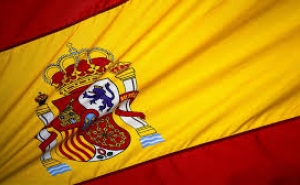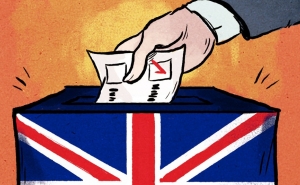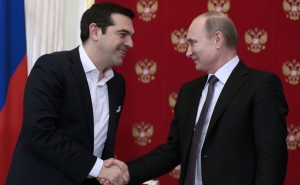
Turkey's EU Accession is not Realistic
Even if the EU wants to give a helping hand to Turkey, any compromises will hardly be connected with the admission process.

Even if the EU wants to give a helping hand to Turkey, any compromises will hardly be connected with the admission process.

In the current chaos it is possible to meet many other forms of the disruption of communication between the real politics and the declared values. In particular, a number of countries, concerning the quote issue on EU's migration policy have already announced that they will accept only a limited number of migrants provided that the latter are Christians.

The referendum is just a small component of the process. The crisis and the bailout have already become an indispensable part of Greek life. But one thing is clear that at this point the outcome does not matter any more, Greece and its people have established serious precedents within the EU and Brussels and they will have to deal with it.

The sides try to hammer a deal, in a sign that they were moving closer to a compromise despite protestations about the of the other side's proposals’ inacceptability. In other words each side is trying to make sure to show they are giving less compromise.

The main opponents to treaty changes are France and Poland. Both of them have their own reasons. Being a funding member of the EU, starting from the Coal and steel community France will not accept any rapprochements from the UK, which has never considered itself a full member of the Union. As for Pols, they oppose as their diaspora will largely suffer from the changes proposed by Cameron.

The existing situation seems to be hard for everyone. The Socialists are not sure what choice awaits them, thus prefer not to speak about the future. The population, that is willing to express its mistrust to the ruling political elite, and has been by Podemos, now sees the possible coalition with the Socialists as a bad idea: for them the Socialist party is no better than the Conservatives.

After all, the issues with Russia remain on an unspoken level but the EU is not ready to intensify tensions with Russia: the Union tries to satisfy the needs of the EaP countries, slightly touches upon the questions, that it does not really want to voice but cannot stay calm either.

As for Armenia, I think this Summit will bring more good news.

There is also the Scottish issue, where, to briefly sum-up, the population was against Cameron as they were against the UK quitting the EU. There were even talks that they were thinking of holding another referendum if Britain decided to leave the EU.

In the elections the main gambling issue of the parties is the question of holding a referendum on country leaving the European Union. Today the question of Brexit has made the elections in Britain a pan-European issue.

Armenia has been a member of the Council of Europe for many years now, and Brasseur will not succeed if she is aiming at spoiling Armenia-CoE relations. In reality, the institutions are not connected with the persons, as when the term expires, the person is replacd, while good relations of institutes and their members remain.

The Parties offer different perspectives on the spheres of defence, migration, education, taxation, environment and national health services.

Both Tsipras's and Putin's expectations from this visit are different, but they look the same direction: undermining the EU unity. As Tsipras is seeking alternative ways to save or raise money, Putin looks for an ally to undermine the EU’s position.

It seems that the new PM Alexis Tsipras sounds more and more desperate in demanding World War II reparations from Germany every time he meets German Chancellor Angela Merkel. While Merkel refuses any thought of reparations, Tspiras says Berlin has 'a moral obligation' to compensate for years of Nazi occupation.

It seemed like the EU was not so much surprised by this move which became a moment of perplexity. So can this move be named another wake-up call for the European Union?

This meeting of the Eurogroup could be considered crucial, as both sides declared that they would proceed with the negotiations if an agreement was reached. Nevertheless, the sides did not manage to reach an agreement.

Since joining the European Economic Community, Britain has put its national interests on the first place in any question, considering them above the idea of the united European.
 17:08
17:08 15:05
15:05 11:11
11:11 10:43
10:43 09:16
09:16 19:55
19:55 18:30
18:30 18:20
18:20 17:01
17:01 16:45
16:45 16:01
16:01 15:59
15:59 15:43
15:43 15:06
15:06 14:47
14:47 14:44
14:44 14:20
14:20 12:57
12:57 11:40
11:40 10:16
10:16day
week
month